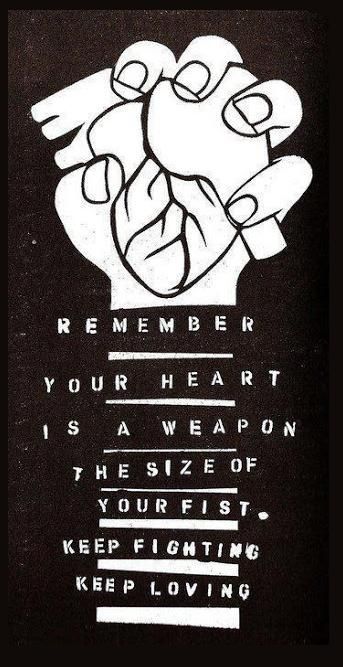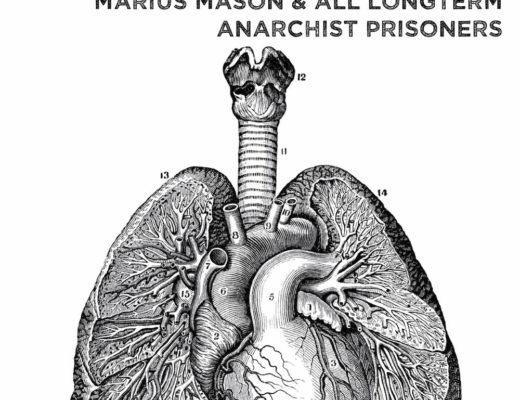This blog was originally hosted at Empty Cages Design.org as part of a series on Overcoming Burnout from 2016-2017. It has now been turned into a book that is available at: https://solidarityapothecary.org/overcomingburnout/
I recently disclosed to the world how I was feeling in my first blog about burnout. I then dived straight into the personal, looking at some underlying beliefs which have been propelling my actions in my second post. Since writing and sharing these I have had such amazing support and feedback.
What has been interesting and unexpected, however, is how people have been interacting with me as if my post was a goodbye-letter, as if I was withdrawing from my work as an organiser and taking a step out of it all. It’s made me think how potentially this is a standard response, that people need time away from their stress triggers, or simply can’t interact with people any more and take a solid step out.
But this isn’t how I feel. I don’t want to drop out. I don’t want to address my challenges by trying to remove them. I could easily go and spend some time in a woodland or in a retreat, and feel as calm as a pond, but then how will I feel when I have to interact with prison officers again? Or when my best friend slits his throat to self harm? Or even just handling the sensory stressors of a city?
I want to address my burnout while still being involved in struggle, and while still living in this troubled culture. I want to work on transforming myself and my situation, not in a faraway land, but here, right where I am now.
In my second post, I articulated how I wanted to look at root causes, well right now I am trying to explore structural and systemic reasons why people can’t reduce the chronic stress of their lives. Race, class, gender, ability, sexual But it is our responsibility to fight back, to re-design, and that’s why engaging in struggle is self care for me. It’s always been my therapy, my support, my sense of purpose.toporientation and all the multiple forms of oppression that harm us cannot be confronted as individual issues, likewise ‘self care’, in my perspective, shouldn’t be approached like this either. Imagine saying to someone in Palestine that not burning out was their personal responsibility.
We are socialised to think that self care is a very personal, individualised responsibility. Because we are atomised by capitalism and sold the archetype of the individual who succeeds because of grit/determination/cunning or intelligence. Any inability to cope or succeed becomes an individual failing. When we internalise that failing we become better wage slaves and consumers; our self esteem is low and we are hopeless that alternative ways of life are possible.
My mum had a nervous breakdown when I was 11. It was the climax of years of chronic stress and the grim reality of poverty as a single parent. I remember her weeping and howling. I remember her being silent and lifeless in her darkened bedroom holding on to one of my cuddly toys with all she had. My mother sees this as ‘reactive depression’, due to moving to a new area, no friends, new job, in debt, no financial support from my father. But what is interesting is the breakdown happened shortly after securing her first job as a mental health nurse. She could access sick pay for the first time. She could finally collapse but know she could (just about) feed her children. After this experience, I told myself I would never break down and I would never be depressed. I found any poor mental health of others draining because of my childhood, it became a ‘red flag’ that made me cut relationships short and repress my own feelings over and over again in allegiance to my pledge. (NB – My Mum is still the bravest and strongest person I’ve ever known).
I’m fortunate I don’t have kids right now! But for nearly my entire life I’ve had very real caring responsibilities that meant withdrawing/burning out was not an option. Whether it was looking after my mum when I was a child, supporting a close friend as a teenager surviving cancer, supporting partners in prison, or over the last several years supporting my best mates Sam and Taylor in prison, or finally nursing Gilly before she died. Let alone campaigns and projects resting on my shoulders. There have always been multiple reasons why dropping those spinning plates was not an option.
Even right now as I try to address my burnout, I know that without doing paid work I can’t support my mates inside, can’t pay my rent etc. And for nearly every working class person that sells their labour to survive, not doing this means debt, homelessness or worse. People withdraw through alcoholism, drug addiction and so forth. And when you have little or no access to support, even prison is a form of respite. Likewise being sectioned or held in institutions has been one of the only withdrawal options for many of us.
In China, some companies have placed nets around their buildings to prevent workers committing suicide. That is their only option to withdraw other than resistance (which means prison or death). For working class communities it has always been live working or die fighting.
So this blog really is more about the structural factors affecting burnout and the privilege and power of different options in response.
The longest I’ve gone without a prison visit was two weeks. I can’t take a few months off to swan off to the south of France or try and ‘live without money’ so that I feel less entrenched in the capitalist sinking sands. For sure there are practical interventions I can make, and for sure I will blog about them. I’m more privileged than most that I’m white and the whole world is structured to benefit me.
My main message here is that we can’t look at self care through an individualistic lens. I’m trying to take responsibility for my health but I’m not going to minimise other systemic factors that make me ill or cause me chronic stress, like the prison service, or selling my labour. Or that I breathe in polluted air, that the food I eat is most likely grown with pesticides, that I’m growing up in patriarchy and so forth. So let’s stop internalising our failures, or hating ourselves for not coping with this world. We are not meant to cope. This world is not designed to benefit us, it’s designed to benefit the few at the top. But it is our responsibility to fight back, to re-design, and that’s why engaging in struggle is self care for me. It’s always been my therapy, my support, my sense of purpose.
So I’m not going to take that away from myself. I’m going to try to heal and transform not just myself but the collectives I work in through this growth in understanding, not through abandonment. I want to transform not withdraw.
We need to see self care, or even just ‘care’ generally, as a collective struggle. That’s why I’m doing my best to write about my personal journey, publicly. The personal is political and there are so many things we need to change about our movements and our society to actually mean that true nourishment is no longer a pipe dream. Until anarchists and other people committed to social change give radical attention to how we care for each other, we will always burn out, we will always feel unsupported and we will remain dependent on state institutions that dehumanise us.
Withdrawal is not an option, but transformation is.




